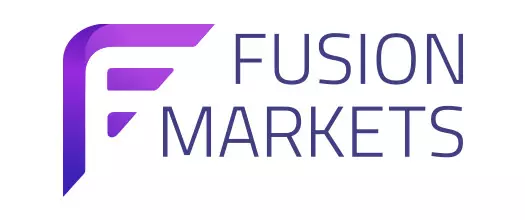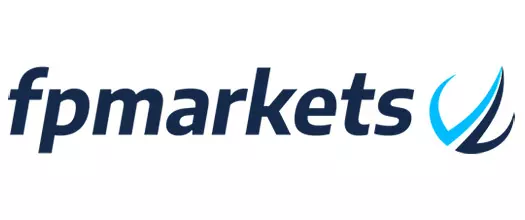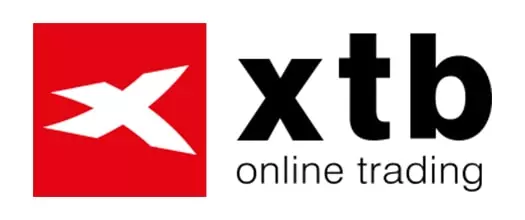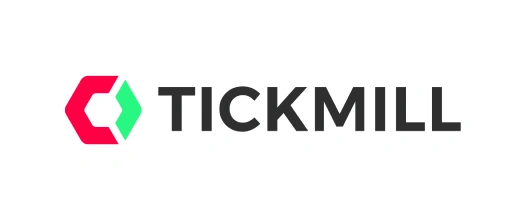Our team of expert traders tested several regulated and trustworthy copper trading brokers and compiled a top list of the best among them. Every platform allowing CFDs on copper received a quality score based on several factors, including its Trustpilot rating, regulation, fees and commissions, available trading platforms, customer service, and more.
 Plus500 USThis content applies only to Plus500 US and clients from the United States. Trading futures involves the risk of loss.
Plus500 USThis content applies only to Plus500 US and clients from the United States. Trading futures involves the risk of loss. eToro61% of retail investor accounts lose money
eToro61% of retail investor accounts lose money Fusion Markets74-89% of retail's CFD accounts lose money
Fusion Markets74-89% of retail's CFD accounts lose money FP Markets73.85% of retail investor accounts lose money
FP Markets73.85% of retail investor accounts lose money Global Prime74-89% of retail CFD accounts lose money
Global Prime74-89% of retail CFD accounts lose money Pepperstone75.5% of retail investor accounts lose money
Pepperstone75.5% of retail investor accounts lose money
Copper trading brokers
Ensuring that your broker of choice offers copper trading should not be the sole reason for choosing it. Traders should also ensure that the platform provides innovative trading solutions, reliable trade execution and competitive pricing, among other advantages.
- 1. AxiMin DepositNo minimum deposit amount requirementFeesNo fees for standard accountsCommissions
- No commission for standard accounts
- $3.50 per lot ($7 round trip) for pro accounts
Spread25 pipsLeverage EU1:10Leverage non-EU1:100CFDs are complex instruments and come with a high risk of losing money rapidly due to leverage. 74.1% of retail investor accounts lose money when trading CFDs with this provider. You should consider whether you understand how CFDs work and whether you can afford to take the high risk of losing your money.Founded in 2007, Axi is now a broker that receives recognition for its premium-quality trading services again and again. The broker is trusted by traders from 100 countries around the globe and counting, and its reliability is what makes Axi a top choice for security-conscious traders.
The security of its users and fraud prevention are top priorities for the broker, and to protect traders’ accounts, Axi has implemented industry-leading encryption standards for payments to and from the trading platform. Additionally, Axi offers automatic client money insurance that should give traders extra peace of mind.
The markets Axi users are allowed to trade include precious metals, indices, shares, forex, cryptocurrencies, oil, and other commodities. Axi is undoubtedly the place to go for trading commodities – copper in particular – thanks to its simple, intuitive platform and advanced trading tools that help traders make smarter decisions. Trading copper is possible on MetaTrader 4 and PsyQuation, while Autochartist provides traders with information about customized trade opportunities.
If you want to start trading without risk, you can do so by creating a demo account and receiving virtual funds to practice with.
 TRADE NOWREAD REVIEWRegulatorsCIRO (Canada), CySEC (Cyprus, # 347/17), FRSA (United Arab Emirates, # 190018), FFAJ (Japan, # 1574), FSCA (South Africa, # 45984), FSRA (Canada, # 190018), ISA (Israel, # 514666577), JFSA (Japan, # 1662), ASIC (Australia, # 406684), BVIFSC (Virgin Islands, British, # SIBA/L/13/1049), CBI (Ireland, # C53877)PlatformsAvaOptions, DupliTrade, AvaSocial, MetaTrader 4, MetaTrader 5, AvaTadeGO, Proprietary Web, ZuluTrade2. AvaTradeMin Deposit$100Fees
TRADE NOWREAD REVIEWRegulatorsCIRO (Canada), CySEC (Cyprus, # 347/17), FRSA (United Arab Emirates, # 190018), FFAJ (Japan, # 1574), FSCA (South Africa, # 45984), FSRA (Canada, # 190018), ISA (Israel, # 514666577), JFSA (Japan, # 1662), ASIC (Australia, # 406684), BVIFSC (Virgin Islands, British, # SIBA/L/13/1049), CBI (Ireland, # C53877)PlatformsAvaOptions, DupliTrade, AvaSocial, MetaTrader 4, MetaTrader 5, AvaTadeGO, Proprietary Web, ZuluTrade2. AvaTradeMin Deposit$100Fees- $50 inactivity fee
- $100 administration fee
Deposit MethodsCommissionsDoes not charge a commissionSpreadEUR/USD: AVG 0.8 pips, GBP/USD: AVG 1.2 pips, USDJPY: AVG 1.3 pipsWithdrawal MethodsLeverage EU1:10Leverage non-EU1:400 (Pro Account), 1:30 (Standard Account)InstrumentsBonds CFDs, Commodity CFDs, Crypto CFDs, Crypto Options, Energy CFDs, ETF CFDs, Forex CFDs, Forex Options, Index CFDs, Index Options, Metal CFDs, Share CFDs, Stock CFDs, Stock Options, US Stock OptionsCFDs are complex instruments and come with a high risk of losing money rapidly due to leverage. 71% of retail investor accounts lose money when trading CFDs with this provider. You should consider whether you understand how CFDs work and whether you can afford to take the high risk of losing your money.AvaTrade was established in 2006, making it one of the first Forex trading platforms to cater to retail customers. Since then, the broker has built a solid reputation and is now among the most highly regulated brokers, with approval from the South African Financial Sector Conduct Authority, Abu Dhabi Global Markets (ADGM), the Financial Regulatory Services Authority, the Israel Securities Authority, the Australian Securities and Investments Commission, the Polish Financial Supervision Authority, and others.
The broker has established itself as a major player in the online financial world, and the variety of instruments available to AvaTrade users is undoubtedly above average. The number of instruments exceeds 1,000, including indices, stocks, Forex, cryptocurrencies, and commodities such as copper.
AvaTrade offers its users several trading platforms and execution methods. AvaTradeGo, WebTrader, MetaTrader 4, and MetaTrader 5 all support mobile trading, which will appeal to traders who are constantly on the go. Copper can also be traded through automated platforms such as DupliTrade and ZuluTrade.
AvaTrade undoubtedly caters to an international user base, with its website available in more than 20 languages. The broker offers a variety of deposit and withdrawal methods designed to meet the needs of traders worldwide, including Neteller, Skrill, wire transfers, and credit or debit cards, among others.
 TRADE NOWREAD REVIEWRegulatorsCONSOB (Italy, # 211), FCA (United Kingdom, # 434413), SCB (Bahamas, # 199667 B), CMVM (Portugal, # 433), FSCM (Mauritius, # GB24203277), CVM (Brazil, # 43050.917/0001-03)PlatformsMetaTrader 4, MetaTrader 5, Proprietary Web, TradingView3. ActivTradesMin Deposit$0Fees
TRADE NOWREAD REVIEWRegulatorsCONSOB (Italy, # 211), FCA (United Kingdom, # 434413), SCB (Bahamas, # 199667 B), CMVM (Portugal, # 433), FSCM (Mauritius, # GB24203277), CVM (Brazil, # 43050.917/0001-03)PlatformsMetaTrader 4, MetaTrader 5, Proprietary Web, TradingView3. ActivTradesMin Deposit$0Fees- 0.5% on deposits (EU/EEA cards)
- 1.5% on deposits (non EU/EEA cards)
- $12.50 for bank transfer withdrawals in USD
- £9 for bank transfers in GBP (SCB and FSC entities only)
- A $10 inactivity fee after 50 weeks
Deposit MethodsCommissionsNo commissionSpreadEUR/USD: AVG 0.5 pips, GBP/USD: AVG 0.8 pips, USDJPY: AVG 0.5 pipsWithdrawal MethodsLeverage EU1:10Leverage non-EU1:400 (CMVM | Pro Account), 1:30 (CMVM | Retail Account), 1:1000 (FSC), 1:200 (SCB)InstrumentsBonds CFDs, Commodity CFDs, Crypto CFDs, ETF CFDs, Forex CFDs, Index CFDs, Share CFDsCFDs are complex instruments and come with a high risk of losing money rapidly due to leverage. 73% of retail investor accounts lose money when trading CFDs with this provider.You should consider whether you understand how CFDs work and whether you can afford to take the high risk of losing your money.ActivTrades is a trusted online broker with two decades of industry experience and licenses from first-tier financial watchdogs such as the FCA in the UK and the CMVM in Portugal. The broker focuses on delivering ultra-fast execution and competitive pricing across more than 25 commodity markets, including CFDs on copper futures. This market features target spreads of 0.05 points and supports trade sizes ranging from 0.01 to 10 lots, with each point worth $250. Traders incur no additional commissions on commodity positions at ActivTrades.
Copper traders can make informed decisions thanks to access to detailed market-sentiment history and sentiment signals. Customers with a limited budget can gain greater exposure to the copper market with leverage of up to 1:10 in the UK and Europe, 1:200 through the Bahamas-licensed division, and 1:500 under the Mauritius entity. The broker safeguards clients with negative balance protection and deposit compensation, ensuring a secure trading environment.
Additionally, ActivTrades holds customer funds in segregated accounts at major banks such as Barclays and Lloyds. In addition to the broker’s proprietary software, traders can place orders through the familiar third-party platforms in the MetaTrader suite. Alternatively, clients seeking advanced charting capabilities can connect their accounts to TradingView. Swap-free and professional accounts are also available.
- 4. AdmiralsMin Deposit$100Fees
- €2 Monthly maintenance fee
- €1 and 1% of the transaction value for debit card payments in another currency for Visa Europe and €1 and 2% for Visa non-Europe
CommissionsNo commissionSpread- 0.28 min spread
- 0.34 typical spread
Leverage EU1:10Leverage non-EU- 1:100
- 1:50
Risk warning: Trading Forex (foreign exchange) or CFDs (contracts for difference) on margin carries a high level of risk and may not be suitable for all investors. There is a possibility that you may sustain a loss equal to or greater than your entire investment. Therefore, you should not invest or risk money that you cannot afford to lose. Before using Admiral Markets UK Ltd, Admiral Markets Cyprus Ltd, Admiral Markets AS Jordan Ltd, Admiral Markets Pty Ltd and Admirals SA (PTY) Ltd services, please acknowledge all of the risks associated with trading.Since its founding in 2001, Admiral Markets has considerably expanded its footprint and is now a truly global organization that provides services worldwide. It is among the most popular brokers, largely because of its wide variety of products. Traders can choose from bonds, stocks, indices, cryptocurrencies, ETFs, and commodities such as copper, silver, gold, palladium, and platinum. Another reason traders might want to try the broker’s services is the ultra-fast order execution, the absence of re-quotes, and tight stop distances.
The broker offers several flexible account types, each with its own specifications and features. Depending on the trading platform they choose, Admiral Markets users can select Trade.MT5, Invest.MT5, or ZeroMT5 accounts. Traders should carefully examine the features of all these account types because the instruments they can access, the currencies in which they can set up their accounts, the minimum amount they can deposit, and the leverage, spreads, and commissions, among other factors, will vary.
It seems that the broker wants to ensure its users can make better-informed decisions, and to achieve this, Admiral Markets has dedicated a separate section for education, where traders will find tutorials, articles, videos, and webinars.
 TRADE NOWREAD REVIEWRegulatorsCySEC (Cyprus, # 079/07), FSAS (Seychelles, # SD056), FSCA (South Africa, # 54018), ASIC (Australia, # 246566), BVIFSC (Virgin Islands, British, # SIBA/L/20/1135)PlatformsMetaTrader 4, MetaTrader 5, Proprietary Mobile, Proprietary Web, TradingView5. easyMarketsMin Deposit$25 ($2,000 for MT4 Premium, $10,000 for MT4 VIP)FeesNo account feesDeposit MethodsCommissionsNo commissionSpreadEUR/USD: MIN 0.8 pips, EUR/USD: AVG 0.7 pips, GBP/USD: MIN 1.4 pips, GBP/USD: AVG 0.9 pips, USDJPY: MIN 1.5 pips, USDJPY: AVG 2 pipsWithdrawal MethodsLeverage EU1:500 (CySEC | Pro Account), 1:30 (CySEC | Retail Account)Leverage non-EU1:500 (ASIC | Pro Account), 1:30 (ASIC | Retail Account), 1:2000 (FSAS | Retail Account)InstrumentsCommodity CFDs, Crypto CFDs, Forex CFDs, Forex Forwards, Forex Options, Index CFDs, Metal CFDs, Metal Options, Share CFDsTrade Responsibly: CFDs and Options are complex instruments and come with a high risk of losing money rapidly due to leverage. 61% of retail investor accounts lose money when trading CFDs with this provider. You should consider whether you understand how CFDs and Options work and whether you can afford to take the high risk of losing your money. Please refer to our full Risk Disclaimer. Easy Forex Trading Ltd (CySEC – License Number 079/07).
TRADE NOWREAD REVIEWRegulatorsCySEC (Cyprus, # 079/07), FSAS (Seychelles, # SD056), FSCA (South Africa, # 54018), ASIC (Australia, # 246566), BVIFSC (Virgin Islands, British, # SIBA/L/20/1135)PlatformsMetaTrader 4, MetaTrader 5, Proprietary Mobile, Proprietary Web, TradingView5. easyMarketsMin Deposit$25 ($2,000 for MT4 Premium, $10,000 for MT4 VIP)FeesNo account feesDeposit MethodsCommissionsNo commissionSpreadEUR/USD: MIN 0.8 pips, EUR/USD: AVG 0.7 pips, GBP/USD: MIN 1.4 pips, GBP/USD: AVG 0.9 pips, USDJPY: MIN 1.5 pips, USDJPY: AVG 2 pipsWithdrawal MethodsLeverage EU1:500 (CySEC | Pro Account), 1:30 (CySEC | Retail Account)Leverage non-EU1:500 (ASIC | Pro Account), 1:30 (ASIC | Retail Account), 1:2000 (FSAS | Retail Account)InstrumentsCommodity CFDs, Crypto CFDs, Forex CFDs, Forex Forwards, Forex Options, Index CFDs, Metal CFDs, Metal Options, Share CFDsTrade Responsibly: CFDs and Options are complex instruments and come with a high risk of losing money rapidly due to leverage. 61% of retail investor accounts lose money when trading CFDs with this provider. You should consider whether you understand how CFDs and Options work and whether you can afford to take the high risk of losing your money. Please refer to our full Risk Disclaimer. Easy Forex Trading Ltd (CySEC – License Number 079/07).Serving customers since 2001, easyMarkets is now a broker that traders choose because of its wide market variety, innovative tools, reliability, and the freedom to execute trades anytime, anywhere.
The broker covers some of the most popular markets, including shares, cryptocurrencies, forex, commodities, indices, and metals. Precious metals such as gold, silver, platinum, and palladium, along with commodity metals like copper, are among the trading opportunities available at easyMarkets.
At easyMarkets, traders can use several trading tools, including dealCancellation, Freeze Rate, and free guaranteed stop loss. Negative balance protection is yet another risk-management tool traders can take advantage of.
The broker also offers its users a wide choice of trading platforms. Copper trading is available on easyMarkets MT4, easyMarkets MT5, easyMarkets TradingView, or the easyMarkets web platform. Depending on the platform they choose, traders can benefit from fixed or variable spreads, integrated news and charts, vanilla options, micro lots, no slippage, and more.
If traders feel they need more time to wrap their heads around copper trading or want to put their strategies through their paces, they should consider using the easyMarkets demo account. Once they gain more experience, traders might want to upgrade their accounts and become easyMarkets VIPs. Doing so gives them access to real-time market updates, the tightest fixed spreads, lower deposit minimums, and the opportunity to trade over the phone.
 TRADE NOWREAD REVIEWRegulatorsCNMV (Spain, # 40), CySEC (Cyprus, # 169/12), DFSA (United Arab Emirates, # F006316), FCA (United Kingdom, # 522157), FSCA (South Africa, # 49970), FSAN (Norway, # FT00118162), IFSC (Belize, # 000302/11), KNF (Poland), BaFin (Germany)PlatformsxStation 56. XTBMin Deposit$250Fees
TRADE NOWREAD REVIEWRegulatorsCNMV (Spain, # 40), CySEC (Cyprus, # 169/12), DFSA (United Arab Emirates, # F006316), FCA (United Kingdom, # 522157), FSCA (South Africa, # 49970), FSAN (Norway, # FT00118162), IFSC (Belize, # 000302/11), KNF (Poland), BaFin (Germany)PlatformsxStation 56. XTBMin Deposit$250Fees- Inactivity fee €10 or the currency equivalent
- 2% fee for deposits via Skrill for UK residents
- 2% fee for deposits via Skrill and 1% for Neteller for UK and European residents
Deposit MethodsCommissions- No commission for a standard account. The only exceptions are ETFs and equity CFDs
- The commission for pro accounts varies between the accepted countries
SpreadEUR/USD: AVG 0.9 pips, GBP/USD: AVG 2.2 pips, USDJPY: AVG 1.4 pipsWithdrawal MethodsLeverage EU1:200 (CySEC | Pro Account), 1:30 (CySEC | Retail Account), 1:30 (FCA | Retail Account)Leverage non-EU1:500 (IFSC | Retail Account)InstrumentsCommodity CFDs, Crypto CFDs, Energy CFDs, ETF CFDs, Forex CFDs, Index CFDs, Metal CFDs, Share CFDs, Stock CFDs, US Stock CFDsContracts for Difference ("CFDs") are leveraged products and carry a significant risk of loss to your capital, as prices may move rapidly against you and you may be required to make further payments to keep any trades open. These products are not suitable for all clients, therefore please ensure you fully understand the risks and seek independent advice.XTB is celebrated as one of the largest CFD and Forex brokers worldwide, giving its users instantaneous and easy access to hundreds of markets. The broker is dedicated to providing its users with a best-in-class trading platform and spares no effort to constantly improve the technology it uses. XTB claims that its trading solutions are cutting edge, and the available platforms confirm this.
Traders who join the XTB community can execute their trades using xStation 5 or xStation 5 Mobile, both of which stand out for their intuitive, straightforward design and wide variety of instruments.
No matter their trading goals, XTB users are bound to find the instruments they seek; available options include cryptocurrencies, stocks, indices, Forex, ETFs, and commodities. The broker allows its users to trade popular commodities like copper, silver, gold, and oil, among others, around the clock and on all devices. Additionally, they benefit from competitive spreads and transparent rollover information visible directly on the chart.
Traders can be fully set up to start trading copper in no time once they top up their accounts through one of the quick and convenient funding options, such as Skrill, Neteller, bank transfer, or debit/credit card. However, traders should keep in mind that withdrawals can be made only to their bank accounts.
With almost 20 years of experience, the broker understands that variety is key to user satisfaction. XTB is a trusted, regulated broker operating under the oversight of the FSC, FCA, KNF, and CySEC.
- 7. HYCMMin Deposit$100FeesNo deposit and withdrawal feesCommissionsNo commission for fixed and classic accountsSpread
- 1.8 pips for fixed accounts
- 1.2 pips for classic accounts
- 0.2 pip for raw accounts
Leverage EU1:10Leverage non-EU1:100High Risk Investment Warning: CFDs are complex instruments and come with a high risk of losing money rapidly due to leverage. 72% of retail investor accounts lose money when trading CFDs with this provider. You should consider whether you understand how CFDs work and whether you can afford to take the high risk of losing your money. For more information please refer to HYCM’s Risk Disclosure.HYCM is one of the best-known brokers in the online trading world, as it has been providing trading services since 1998. The broker has a solid background, as it is part of the HYCM Capital Markets Group, a company that has businesses in multiple areas.
It is regulated by CySEC and the FCA, which speaks volumes about the broker’s trustworthiness. Traders should not worry about the safety of their funds, either, as they are protected by the IFC and the FSCS.
The broker is dedicated to offering trading services that are up to standard, and this is why HYCM provides its users with tight spreads, lightning-fast execution times, a variety of account types, and a wide assortment of instruments. Forex, stocks, indices, and commodities, including copper, are all on the list of options account holders can choose from.
HYCM users have the opportunity to pick from three account types – fixed, classic, and raw. Depending on the account type they choose, traders can benefit from commission-free trades, minimum deposits of $100 or $200, and variable or fixed spreads, ensuring that they will find an option that suits their individual requirements. VIP accounts are also available, and traders who opt for them will benefit from a personal account manager, better spreads, and comprehensive market analytics.
The broker has received a number of global awards for excellence, and HYCM clearly delivers when it comes to mobile and Forex trading. The broker’s name has also become synonymous with excellence when CFDs are concerned.
 TRADE NOWREAD REVIEWRegulatorsCySEC (Cyprus, # 319/17), FCA (United Kingdom, # 793714), SCB (Bahamas, # SIA-F245), ASIC (Australia, # 513393), ESCA (United Arab Emirates, # 20200000176)PlatformsMetaTrader 4, Proprietary Mobile, Proprietary Web, TradingView8. Capital.comMin Deposit$20FeesNo deposit and withdrawal feesDeposit MethodsCommissionsNo commissionSpreadEUR/USD: AVG 0.6 pips, GBP/USD: AVG 1.3 pips, USDJPY: AVG 1 pipsWithdrawal MethodsLeverage EU1:30 (CySEC | Retail Account), 1:30 (FCA | Retail Account), 1:300 (CySEC | Pro Account), 1:300 (FCA | Pro Account)Leverage non-EU1:30 (ASIC | Retail Account), 1:200 (SCB | Retail Account)InstrumentsCommodity CFDs, Commodity Futures, Crypto CFDs, Crypto futures, Currency Futures, Forex CFDs, Index CFDs, Index Futures, Options, Share CFDsCFDs are complex instruments and come with a high risk of losing money rapidly due to leverage. 83.45% of retail investor accounts lose money when trading CFDs with this provider. You should consider whether you understand how CFDs work and whether you can afford to take the high risk of losing your money.
TRADE NOWREAD REVIEWRegulatorsCySEC (Cyprus, # 319/17), FCA (United Kingdom, # 793714), SCB (Bahamas, # SIA-F245), ASIC (Australia, # 513393), ESCA (United Arab Emirates, # 20200000176)PlatformsMetaTrader 4, Proprietary Mobile, Proprietary Web, TradingView8. Capital.comMin Deposit$20FeesNo deposit and withdrawal feesDeposit MethodsCommissionsNo commissionSpreadEUR/USD: AVG 0.6 pips, GBP/USD: AVG 1.3 pips, USDJPY: AVG 1 pipsWithdrawal MethodsLeverage EU1:30 (CySEC | Retail Account), 1:30 (FCA | Retail Account), 1:300 (CySEC | Pro Account), 1:300 (FCA | Pro Account)Leverage non-EU1:30 (ASIC | Retail Account), 1:200 (SCB | Retail Account)InstrumentsCommodity CFDs, Commodity Futures, Crypto CFDs, Crypto futures, Currency Futures, Forex CFDs, Index CFDs, Index Futures, Options, Share CFDsCFDs are complex instruments and come with a high risk of losing money rapidly due to leverage. 83.45% of retail investor accounts lose money when trading CFDs with this provider. You should consider whether you understand how CFDs work and whether you can afford to take the high risk of losing your money.Capital.com is another broker that traders might want to add to their list of go-to copper trading platforms. The platform the broker offers is sure to grab traders’ attention because it is easy to use and guarantees that trading copper will be simpler and far more intuitive than on many other platforms.
As account holders at Capital.com, traders will enjoy seamless access to more than 6,000 of the world’s largest markets, including commodities, cryptocurrencies, indices, shares, and currency pairs. Not only are traders offered the opportunity to trade copper, but they are also presented with live forecasts about its price and an in-depth explanation of how to speculate on it.
Traders are offered the ultimate freedom to enter and exit positions whenever and wherever they prefer, as they can access the markets on their desktop or portable device. Trading copper is only one click away, and so are the industry-leading features the broker has introduced. Price alerts, client sentiment data, charts, and dozens of technical indicators are just some of the features traders can use to achieve the goals they have set.
Capital.com places a strong emphasis on protecting its users and relies on Transport Layer Security to encrypt all information traders provide. The broker’s trustworthiness is not something traders need to worry about, as Capital.com holds stamps of approval from the FCA, ASIC, CySEC, and FSA.
- 9. Trading 212Min Deposit€10Fees
- No deposit fees until the cumulative deposit amount reaches €2,000. After this, a fee of 0.7% will apply
- Withdrawals are fee-free
CommissionsNo commissionSpread0.09Leverage EU1:10Leverage non-EU1:10Your capital is at risk. Investments can fall and rise and you may get back less than you invested. Tax treatment depends on your individual circumstances and may be subject to change. CFDs are complex instruments and come with a high risk of losing money rapidly due to leverage. The vast majority of retail client accounts lose money when trading CFDs, you should consider whether you understand how CFDs work and whether you can afford to take the high risk of losing your money.With a customer base of more than 1.5 million users, Trading 212 is undoubtedly one of the most popular brokers available today. The broker continually thinks outside the box, and Trading 212 became the first platform to offer commission-free stock trading in Europe and the UK.
It is hardly a coincidence that Trading 212’s services continue to make waves, as the broker provides users with quick and stress-free access to several major markets, including forex, indices, stocks, and commodities. If you are interested in trading commodities, copper in particular, you will have the opportunity to do so whenever and wherever you wish. The Trading 212 mobile app is undoubtedly an attention-grabber, having become the number-one trading platform in both the UK and Germany.
Trading 212’s Hotlist is a section traders often visit to see how many trades have been made on each instrument. The Risers and Fallers section, on the other hand, helps them stay abreast of changes in the number of owners for each stock over a specific period.
Traders can rest assured that their sensitive information and funds are well protected, as Trading 212 is authorized and regulated by the Financial Conduct Authority and the Cyprus Securities and Exchange Commission. Trader protection is further reinforced by an around-the-clock operations center whose representatives monitor traffic and alert clients whenever necessary. Additionally, the US-based company SecurityMetrics conducts regular scans and penetration tests to ensure that safety measures remain up to date.
- 10. TickmillMin Deposit$100FeesN/ADeposit MethodsCommissions
- 0.0020% for pro accounts
- No commission on stocks
SpreadEUR/USD: AVG 1.7 pips, EUR/USD: AVG 0.1 pips, GBP/USD: AVG 1.9 pips, GBP/USD: AVG 0.3 pips, USDJPY: AVG 1.7 pips, USDJPY: AVG 0.1 pipsWithdrawal MethodsLeverage EU1:500 (CySEC | Pro Account), 1:500 (FCA | Pro Account), 1:30 (CySEC | Retail Account), 1:30 (FCA | Retail Account)Leverage non-EU1:1000 (FSAS)InstrumentsBonds CFDs, Commodity CFDs, Crypto CFDs, Forex CFDs, Index CFDs, Stock CFDsRisk Warning: CFDs are complex instruments and come with a high risk of losing money rapidly due to leverage. 71% of retail investor accounts lose money when trading CFDs with Tickmill UK Ltd. You should consider whether you understand how CFDs or our other products work and whether you can afford to take the high risk of losing your money.Tickmill is a broker with a proven track record that is known for its premium trading products and services. The broker is highly preferred by traders thanks to its premium trading conditions, a variety of more than 180 instruments, low commissions, and spreads starting from 0.00 pips.
Tickmill provides its users with quick and easy access to a number of popular instruments, including Forex, stock indices, oil, bonds, cryptocurrencies, and metals. Traders will have the chance to speculate on the price of copper after completing the registration and making a deposit, a process that is done in the blink of an eye, whether they choose to use MetaTrader 4, MetaTrader 5, the MetaTrader WebTrader platform, or MetaTrader for Mac.
In order to cater to the constantly evolving needs of its users, the broker relies on trading platforms that are powered by innovative technology and offer advanced features. Tickmill undoubtedly strives to offer services that meet the requirements of all traders, and its range of account types proves this. Depending on their trading experience and style, Tickmill’s users can choose between a Classic, Pro, VIP, or Futures account.
The dedicated customer support team stands by traders’ side whenever they need assistance, and it can be reached in several languages via live chat, phone, or email.
Copper is widely considered the first metal ever used by humans. It has played a key role in technology for thousands of years and today has numerous essential industrial uses thanks to its excellent electrical and thermal conductivity. Copper has also been used to mint coins and, for many applications, is employed in its pure form.
Copper is often regarded as an economic bellwether, with a diverse range of applications. Because of its wide range of use, the soft, malleable metal is often seen as an indicator of global economic health. Most demand for copper comes from electronic products, transport equipment and building construction.
It is used in numerous industries, including agriculture and construction, and is now one of the most commonly traded commodities. The metal is highly correlated with economic growth, and traders often turn to it when hedgers and speculators seek either to protect themselves from future price movements or to profit from them.
How copper trading works for traders and brokers
Like silver and gold, copper is highly ductile and conducts electricity, but it is far less rare. Because the metal is used worldwide, it is traded in large volumes, which can benefit traders through cleaner chart patterns and tighter spreads.
One of the main reasons traders focus on copper is its wide accessibility. Copper is traded for various purposes, with portfolio diversification being one of the most common. The metal can be traded on multiple platforms, and speculators can choose between options, futures and spreads. Gaining exposure to copper is also possible through ETFs and CFDs.
Depending on their preferences, traders can invest in copper either directly or indirectly; if they opt for the former, they can choose between coins, bullion bars and futures.
When selecting a copper trading platform, traders should check whether the broker charges commission and whether inactivity, deposit and withdrawal fees apply. Required margin on each trade is another factor to consider.
- Bullion bars – as with gold and silver, investing in copper is possible by purchasing bullion bars. However, traders should remember the additional costs involved
- Copper coins – purchasing copper coins is more convenient than buying bullion bars, and traders can buy smaller quantities if they prefer
- Copper futures – another way to gain exposure to copper is through futures. Copper futures require traders to buy or sell a preset amount of copper on a specific future date. They may roll the position beyond the predetermined date or close it before expiry
- Copper stocks – buying shares in copper mining companies is one way to gain exposure to the metal as an equity investment. Returns will vary considerably depending on the mines a company owns and its overall quality
- Copper ETFs – traders can also buy ETFs that hold shares of copper mining companies, copper futures, bullion or a combination of these
- Copper options – like futures, copper options have an expiry date, but they are profitable only if the asset’s price reaches a preset level before that date
- Copper CFDs – CFDs are suitable for traders who do not want to own bullion, coins, shares, options or futures but wish to speculate on the copper price. The value of a contract for difference decreases when the copper price falls and increases when it rises
Why the price of copper changes
To improve your trading preparation and increase your chances of predicting price direction, invest time in understanding the factors that move the copper price.
To a large extent, copper’s price direction is determined by demand from markets such as India and China. In simple terms, copper prices rise during periods of economic growth, when demand is higher, and fall during economic downturns.
Supply issues can also influence copper prices. For example, trade wars that reduce mining output and disrupt supply chains may push prices higher.
Copper prices are further affected by substitute metals. When copper becomes too expensive, some industries switch to cheaper alternatives such as aluminium. As a result, demand for copper falls and its price declines.















